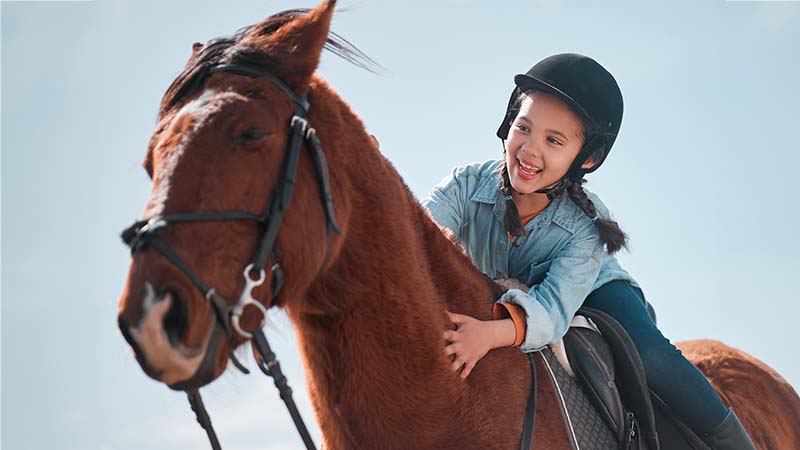Integrating animal-assisted activities into summer camp programs offers a unique and enriching experience for campers. These activities, which involve interactions with animals in various forms, can significantly enhance the camp environment. From petting zoos to therapeutic riding sessions, the presence of animals at camps provides an array of benefits that extend beyond simple enjoyment.
Such activities not only offer fun and excitement for children but also contribute to their emotional, social, and educational development. The interaction with animals can create a calming and nurturing environment, helping campers to learn empathy, responsibility, and gain a deeper appreciation for nature. This introduction to animal-assisted activities sets the stage for exploring their multifaceted benefits in the context of a summer camp.
Emotional and Social Benefits
The emotional and social benefits of animal-assisted activities at summer camps are vast and varied:
- Development of Compassion: Regular interaction with animals teaches children empathy and compassion. They learn to recognize and respond to the needs and feelings of another being, which can extend to their interactions with people.
- Encouraging Responsibility: Taking care of animals, even in simple ways, helps children understand and develop a sense of responsibility. This can be particularly impactful in a camp setting where they might be away from their usual support structures.
- Creating Bonds: Animals often serve as a social catalyst among campers, helping to forge new friendships. Shared experiences in animal care or activities can lead to lasting bonds between children.

These emotional and social benefits showcase the profound impact that animal-assisted activities can have on the overall well-being and development of campers, making these interactions a valuable addition to summer camp programs.
Educational Aspects
Animal-assisted activities at summer camps also offer significant educational benefits:
- Learning About Nature: Interaction with animals can enhance a child’s understanding and appreciation of the natural world. It provides a hands-on experience that complements traditional environmental education.
- Teaching Responsibility: Caring for animals requires a certain level of responsibility, teaching children important life skills in a practical and engaging way.
- Understanding Animal Behavior: These activities give children the opportunity to learn about animal behavior, habitats, and the importance of conservation.
Incorporating animals into camp programs not only makes learning fun but also deepens campers’ knowledge and respect for nature and wildlife. These educational experiences can inspire a lifelong interest in biology, ecology, and environmental stewardship.
Building Empathy and Compassion
Animal-assisted activities at summer camps play a crucial role in building empathy and compassion among campers:
- These activities teach children to care for and understand animals, fostering a sense of empathy and kindness.
- By learning to recognize and respond to the needs of animals, campers develop a greater capacity for empathy towards others.
- The nurturing environment created through animal care encourages compassion and emotional intelligence.

This development of empathy and compassion is a key benefit of animal-assisted activities, contributing significantly to the social and emotional growth of children in a camp setting.
Implementation Strategies
Successfully integrating animal-assisted activities in summer camp programs involves careful planning and consideration:
- Partnering with Animal Experts: Collaborate with local animal shelters, wildlife experts, or therapeutic animal organizations to design safe and educational programs.
- Training Staff: Ensure camp staff are trained in animal handling and safety to facilitate a secure and enriching experience for campers.
- Selecting Appropriate Activities: Choose activities that are age-appropriate and consider the comfort level of both the animals and the children.
- Safety Protocols: Establish clear safety guidelines for interacting with animals to prevent accidents and ensure the welfare of both the animals and the campers.
These strategies help in creating a well-rounded and impactful animal-assisted program at summer camps, enriching the camp experience for children in multiple ways.
The inclusion of animal-assisted activities in summer camps offers a multifaceted array of benefits. These programs not only provide educational and emotional enrichment but also play a vital role in developing empathy and compassion in campers. The experiences and lessons learned through these interactions with animals can leave lasting impressions, fostering a deeper appreciation for wildlife and nature. By thoughtfully implementing these activities, summer camps can significantly enhance their program’s appeal and impact, creating memorable and transformative experiences for all campers.
